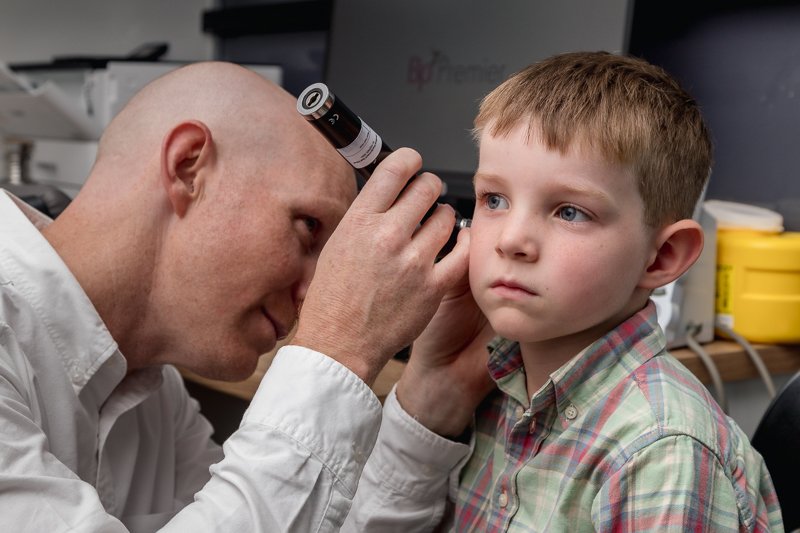What is IBS?
Some medical conditions are very hard to live with - an experience that’s often made worse because people misunderstood or minimise them. People equate a migraine with a bad headache, think flu is just a bad cold, or believe irritable bowel syndrome (IBS) means a bit of a tummy ache.
Those living with IBS tell a different story - though sometimes they don’t tell it all because they feel too embarrassed.
What is irritable bowel syndrome?
IBS is a condition affecting the digestive system. It’s a chronic (long-term) condition and it can take some trial and error to find a treatment that works for you. There may be times when the symptoms are intense and problematic and other periods where the symptoms sink into the background and life becomes easier for a while.
About 1 in 3 Australians are thought to have IBS. It’s more common in women and the first symptoms usually start before the age of 40.
What are the symptoms of IBS?
Key symptoms of IBS include:
Abdominal pain or discomfort
Bloating
Chronic diarrhoea or constipation – or both
Nausea
Feeling you still need a poo, even though you’ve just done one
White mucus in your poo sometimes.
Passing wind or doing a poo can relieve symptoms for a while.
IBS is not only a painful and uncomfortable condition: it can be an embarrassing one too. People who live with diarrhoea-dominant IBS may experience an urgent need for the toilet – and may not always get there in time. They may need to carry wipes and a change of clothes when going out and they’ll usually be very aware of where the nearest toilet is.
What causes IBS?
That’s quite a complicated question. Many different factors come to play in causing IBS and it’s a different mix for each person.
If you’re susceptible to IBS, you may notice that attacks are triggered by things like:
A bout of gastro, which can lead to persistent bowel symptoms long after the initial bacteria or virus has gone
Intolerance to certain foods which are poorly absorbed by the gut, especially a group of carbohydrates known as FODMAPS
Strong emotions like anxiety and stress (there are more than 100 million nerve cells in your gut)
An overly sensitive gut
Some medications like antibiotics, antacids and painkillers, which can cause constipation and diarrhoea.
How is IBS diagnosed?
If you think you may have IBS, it’s important to visit your GP for a proper diagnosis.
You should definitely see your doctor immediately if you have:
Severe symptoms
Blood in your stools
Unexplained or unintentional weight loss
Fever or severe diarrhoea.
To diagnose IBS, your doctor may:
Ask about your symptoms to find out if you have had recurrent abdominal pain at least once a week for 3 months alongside at least 2 other symptoms over the last 6 months such as:
○ Pain linked to bowel motion
○ A change in how often you need to poo
○ A change in the consistency or appearance of your stools.
Carry out tests to rule out other conditions with similar symptoms, such as coeliac disease or bowel cancer.
How is IBS treated?
IBS often involves a unique blend of symptoms for each patient. That means that there’s a process of ‘trial and learn’ when it comes to finding the right mix of IBS treatments to provide relief for each person.
Common treatments for IBS include:
Eating more fibre
Drinking more clear fluids
Starting a low-FODMAP diet under the guidance of an accredited practising dietitian
Taking medications to:
○ Prevent diarrhoea, if you have diarrhoea-predominant IBS
○ Prevent constipation, if you have constipation-dominant IBS
○ Ease cramping
○ Treat pain, bloating and bowel frequency (antidepressants often help here)
Psychological therapy such as cognitive behavioural therapy or gut-directed hypnotherapy
Physiotherapy to strengthen the pelvic floor to improve the ability to pass bowel motions effectively.
How can Peregian Family Medical Centre help?
At Peregian Family Medical Centre, we recognise the distress and discomfort that IBS causes.
If you’re experiencing symptoms of IBS, or if your IBS is worsening, we encourage you to come and see one of our GPs. We’ll listen to you with empathy, ask about your symptoms and rule out other conditions. Then we’ll work with you to find a mix of treatments that relieve your symptoms and give you confidence to enjoy life.
Disclaimer
All information is general in nature. Patients should consider their own personal circumstances and seek a second opinion.






